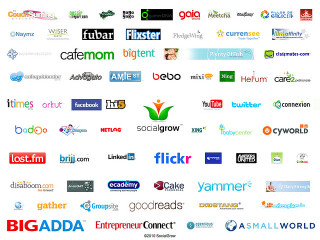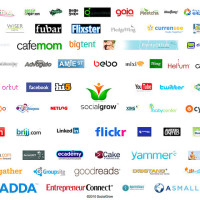When you compose a new post for your blog, what’s the first thing you have in mind? Is it your readers? Or is it Google? It’s a sad reality of the modern web that bloggers cater to the whims of Google, often to the detriment of their readers. They stuff their article with keywords and mind every little link, lest they find themselves not ranking in the top 10 for high-volume keywords. But you know what?
You can’t blame them
The incentives are there. Google is the world’s biggest traffic referrer. Bloggers need traffic, and so catering to Google’s rules can pay off. Unfortunately, at the same time it can create a poor experience for readers.

The race to the top of high-volume search results makes for similar content across sites. As Web 2.0 commentators say, it’s the commoditization of content. Users type in their search, and as long as the first one reasonably matches their intention that’s the one they click.
There are ways now to stop depending so heavily on Google as a referrer. It’s not that we should ignore Google; that’s a bit extreme given its ability to refer to your unique content for longtail keywords. But we should explore thees other referrers and make the most of them. Diversity of referrals can lead to more focused readers.
1. Mobile apps
If you want people to engage directly with your content, you almost have to offer them a mobile application. It doesn’t matter if the app is little more than a mobile version of your site. It is simply what smartphone audiences want. And it’s getting awfully difficult to ignore the smartphone-wielding crew.
On one of my blogs, a popular one about the New York Yankees, we’ve seen a massive spike in mobile readers this year. Yet we’ve only offered a mobile site. We thought that site looked nice and served our readers well — until it started crashing their browsers. We were slow to take action and create a mobile app, and we’re now paying the price.
When users download and launch your mobile app, you have their attention. They are choosing you, at least for the moment. That’s an opportunity that no modern publisher can pass up. Take some of the time you spent optimizing your site for search and spend it working on a mobile app. It will pay off for you and your readers.
2. Social media
How many Twitter followers does your blog have? How many Facebook fans? They might seem like ego-driven metrics, but they count for much more than that. Facebook and Twitter have turned into massive referrals for brands. Best of all, they act in a distinctly different manner than Google: they let you stand out from the crowd, rather than blend in.
While Facebook is the bigger of the two sites, it’s not as high quality a referrer for text-based sites. In my personal experience, and in the experience of my websites, images tend to get passed around on Facebook far more frequently than text links. Twitter, on the other hand, provides the perfect environment for link sharing. Gain a Twitter following and harness the power of not only your followers, but the people who follow your followers.
That’s the beauty of spreading your content on social networks: content spreads. Someone retweets your link, and someone who follows that person, but who does not follow you, gets to see it. It can keep spreading that way, too. Show someone something relevant and you win over new followers, which expands your social graph — making the process even more effective. Take the time and invest in your social media presence.
3. PPC
Cliches are cliche for a reason, and that’s absolutely true for the old one: you have to spend money to make money. On the web we expect things for free. You can learn about internet marketing for free, and if you can do them yourself SEO and link building comes without a monetary investment. Many bloggers prefer these methods for that very reason. But they have limits.
If you haven’t experimented with pay-per-click search ads — the ones in the beige box you see above Google results — that might be a good thing. The state of PPC has changed a bit. Unsurprisingly, it’s for the better. Since Google makes direct sales of PPC, they have every incentive to make it more important. With the rise of mobile search, they got a gift. PPC is far more important on devices with smaller screens.
Go and search something like “home improvement” on your mobile device. You’ll probably see three PPC ads atop the search results. How many organic results do you see? Maybe one? Now check it on a tablet. Maybe two? Even on my Lenovo Ultrabook, which has a 13-inch screen, I see only a few organic results. Yet I see all those PPC results front and center. Even if I’m not so inclined to click them, my eyes have seen them and the attached copy. There’s value in that (and if you can make an impression without someone clicking, you win double, since you only pay when someone clicks).
Again, PPC will cost you money. You have to pay every time someone clicks on your link, and the higher volume keywords can get expensive. You also need an experienced copywriter to create the perfect title and tagline for your ad. But the referrals you gain from it can make the investment worth your while — even more so if you gain return visitors.
For bloggers who have been around through the heyday of SEO and link building, it’s tough to imagine another major source of traffic. But just as Google has cracked down on many practices that bloggers have employed for the last decade, a new wave or referrers has popped up. Taking advantage of them can help you reach a wider audience and gain referrals, even as Google seemingly makes it more difficult.
